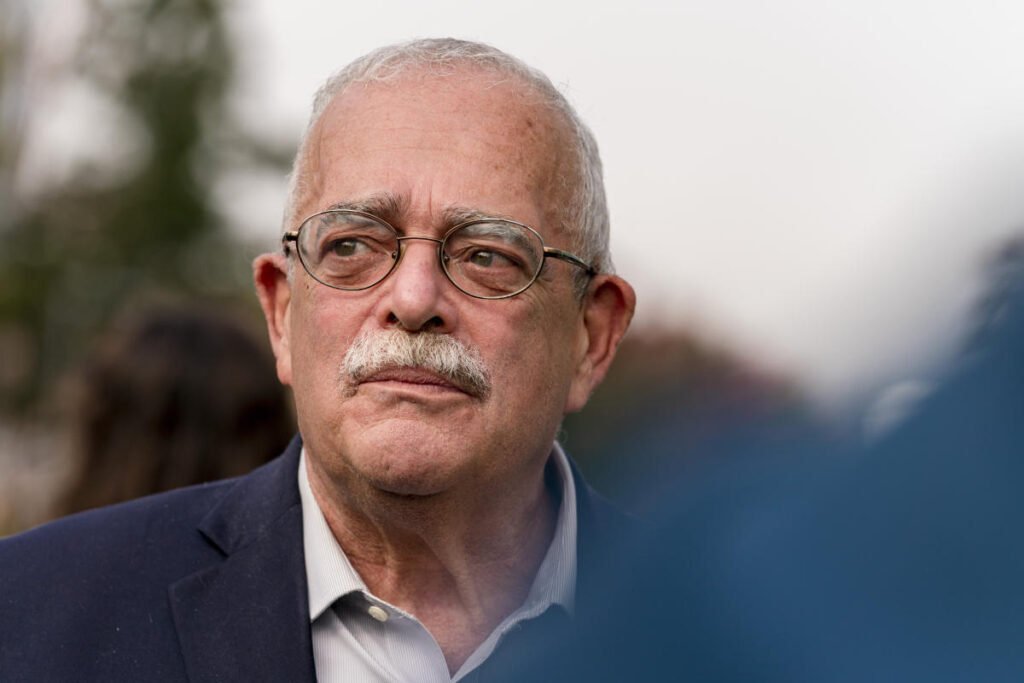On a significant day in Washington, House Democrats made a crucial decision regarding their leadership structure, entrusting 74-year-old Rep. Gerry Connolly with the pivotal role of leading the House Oversight Committee for the upcoming term. This move has reignited the debate over generational change within the party, particularly given the context of a potentially contentious second term for Donald Trump. In a closed-door caucus meeting, Connolly secured 131 votes against 84 for 35-year-old Rep. Alexandria Ocasio-Cortez, who had strongly advocated for younger leadership. Connolly’s long tenure on the committee, totaling 16 years, played a key role in his selection, as many members valued experience and a proven legislative track record over the calls for new, youthful leadership.
In the lead-up to the vote, Connolly received backing from a Democratic panel tasked with recommending committee assignments, a factor considered significant in the minds of many caucus members. Conversely, Ocasio-Cortez and her supporters highlighted the narrow margin by which Connolly had won the recommendation as a sign she still had a fighting chance. Her lack of response to media inquiries following the vote indicated the disappointment of her supporters. Rep. Annie Kuster, the chair of the New Democratic Coalition, pointed out that many members from swing districts had reservations about Ocasio-Cortez’s history of supporting primary challenges against fellow Democrats, which could jeopardize their electoral prospects.
The outcome of the vote not only highlighted Connolly’s experience but also illustrated a broader generational struggle within the party, particularly in light of the recent electoral setbacks that have granted Republicans full control of Washington. While Connolly represents the older guard of Democratic leadership, several younger members, including Reps. Angie Craig and Jared Huffman, successfully defeated more senior colleagues for leadership positions on key committees, reflecting a complex balancing act within the party. Craig, who became the top Democrat on the Natural Resources Committee, suggested that there is an emerging understanding that the party must adapt its strategies and approaches to engage effectively with today’s political challenges.
Interestingly, Ocasio-Cortez’s defeat came amidst shifting dynamics in committee leadership, where younger Democrats such as Craig and Huffman have successfully claimed prominent roles, emphasizing a healthy, multi-generational approach to leadership. Huffman specifically noted that while there is honest discourse about generational transitions, senior members bring invaluable experience and insight, fostering a collaborative rather than divisive environment. This illustrates an ongoing effort within the party to blend the experience of senior leadership with the fresh perspectives offered by younger members.
With Connolly poised to take over the Oversight Committee, it’s worth noting that he is not without challenges. He had previously sought the chairman role twice without success and faced concerns about his health following a recent cancer diagnosis. However, Connolly reassured colleagues about his health status, invoking the shared experiences of cancer survivors present in the room, thus assuaging fears regarding his ability to fulfill the demands of the position. His commitment to resigning if he found himself unable to fulfill the role added a layer of reassurance, highlighting the focus on responsible leadership amidst personal challenges.
In conclusion, Connolly’s ascendance to the lead position on the Oversight Committee marks a significant moment for House Democrats, caught in a delicate balancing act between experience and calls for generational change. The outcome of this vote reflects ongoing tensions within the party but also a pragmatic approach to governance. Moving forward, as the party prepares to navigate the challenges posed by a Republican majority and a potential Trump presidency, the convergence of old and new leadership may be instrumental in shaping the Democratic Party’s strategic direction in the coming years. The narrative of generational change, while highlighted by figures like Ocasio-Cortez, coexists with a vital recognition of the expertise that seasoned leaders like Connolly bring to addressing pressing national issues.

